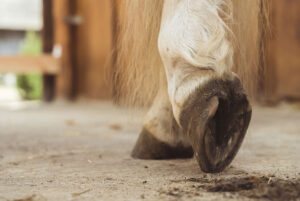Equine Grass Sickness Linked to Clostridium Botulinum
A new study completed at the University of Liverpool in the United Kingdom and funded by The Home of Rest For Horses has revealed that grass sickness is strongly associated with low antibody levels to the bacterium Clostridium botulinum. The findings might lead to routine vaccination against the bacterium in U.K. horses.
Grass sickness was first identified around 100 years
- Topics: Article
A new study completed at the University of Liverpool in the United Kingdom and funded by The Home of Rest For Horses has revealed that grass sickness is strongly associated with low antibody levels to the bacterium Clostridium botulinum. The findings might lead to routine vaccination against the bacterium in U.K. horses.
Grass sickness was first identified around 100 years ago, but scientists have struggled to understand the disease and identify its cause. Few or no cases have been found in the United States. The disease usually is fatal and presents itself in two different ways–either as severe colic or weight loss and difficulty eating. Both manifestations of grass sickness are as a result of nerve damage to the intestine. (Past articles on TheHorse.com include #2906 and #1165
Create a free account with TheHorse.com to view this content.
TheHorse.com is home to thousands of free articles about horse health care. In order to access some of our exclusive free content, you must be signed into TheHorse.com.
Start your free account today!
Already have an account?
and continue reading.
Related Articles
Stay on top of the most recent Horse Health news with


















